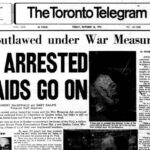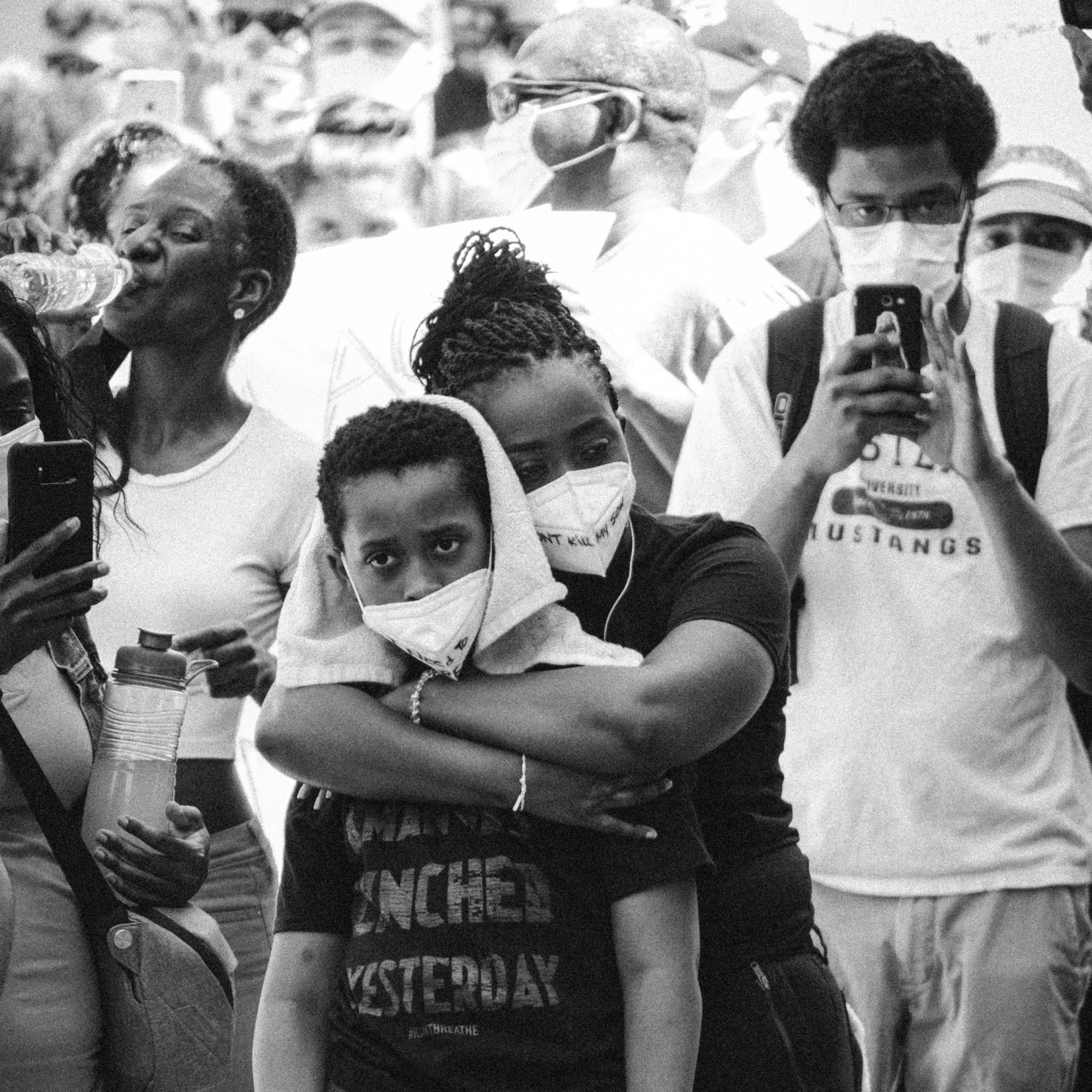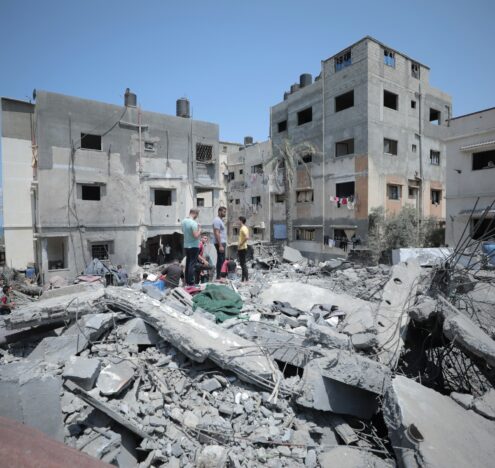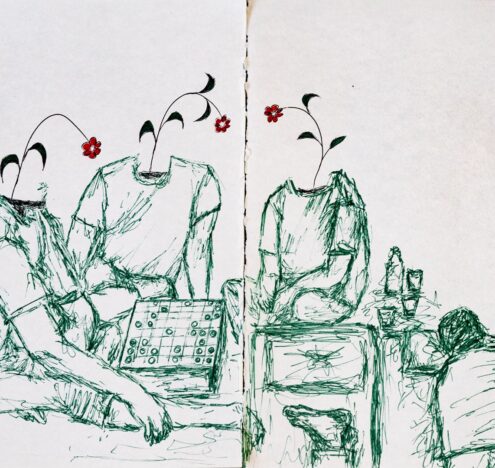Four years ago, my almost 24-year-old brother died unexpectedly. Talal is always on my mind, but even more so in the middle of an election cycle and massive protests against the injustices facing Black Americans. He was a vocal activist on criminal justice reform, and I know he would have been on the frontlines of today’s debates and demonstrations. I miss Talal’s intellect, commitment to progressive causes, and desire to change the world. But most of all, I miss his empathetic personality. In this time of political upheaval, I often find myself wishing more people possessed his superhuman ability to understand others.
Talal was an Arab-American progressive who had little in common with anyone in our rural Ohio hometown. Yet he never let that stop him from engaging with people from different backgrounds. He was passionate but pragmatic, and he believed it was necessary to bridge divides and build coalitions. He would gladly and easily befriend anyone whether they were liberal or conservative.
Over the past four years, I’ve seen pieces of Talal in countless strangers. This includes everyone from bright-eyed political activists in the Middle East to prominent national figures like Joe Biden. Since Talal passed, I’ve also become unexpectedly sensitive to demonstrations of empathy, especially by political figures. I’ve cried over countless heartfelt campaign speeches and found myself unexpectedly hugging strangers in far away countries who’ve lost jobs and family members. In recent weeks, I’ve been especially moved as I’ve watched friends and family who never cared about racial injustice reach out to Black neighbors and apologize for not taking their concerns and rights more seriously.
American society might be plagued with challenges and divisions, but I can sense many people around me working harder to reach out to the opposite side with every passing day. I can see how this shift is influencing activists and politicians alike as we move closer to the election. This realization has helped me walk myself back from the dark state of despair I’ve existed in since the day after the 2016 election. For the first time in three years, I am hopeful about our country’s future – and I’m as surprised as anyone about the sudden turnaround in my outlook. Then I remember my brother, and I realize I should have never let myself underestimate the power of empathy in the first place.
Over time, I reluctantly admitted Talal was doing something right and started taking notes. I talked less and listened more. I looked for the good in people and searched for common ground.
Talal was two years younger than me, but he was always the better leader, friend, and activist. We shared a commitment to social justice and progressive politics, but somehow he always broke through to others in a way that I could not. I would routinely debate with classmates until I was blue in the face and get absolutely nowhere. On the other hand, Talal would glide in, ask a few questions, crack a joke, and bond over shared experiences. He made people feel heard, so they loved and listened to him – even if they hated his politics. It baffled and drove me insane throughout our time in college together.
Over time, I reluctantly admitted Talal was doing something right and started taking notes. I talked less and listened more. I looked for the good in people and searched for common ground. I put myself in their shoes and considered how they might be feeling before responding reflexively from my own viewpoint. To my surprise, I immediately started seeing results. Instead of heated debates, I started enjoying productive discussions with friends and colleagues. People engaged with me instead of writing me off, and it made me a more effective champion for progressive causes.
I may have learned how to be more empathetic, but for all my efforts, I’m not a natural like Talal. It takes a special kind of person to instinctively bond with strangers, to internalize their views, and to use that to fuel policy objectives and priorities. Empathy is a profoundly important gift for politicians and for activists, who depend on earning trust and garnering buy-in from voters. Ultimately, politics is about human connections – not just policy promises. For people to follow you, they need to believe that you understand them and will commit your heart and soul to doing what’s best for them. This is especially true for people who disagree with you and mistrust your priorities.
It seems so obvious, but this was a major lesson for me, and it’s still difficult to internalize. Over the past three politically fraught years, I have often chosen anger over empathy. I have expressed frustration with the voters who elected Trump, and shut many of them out of my life. I have stayed safe in my liberal Washington bubble, surrounded by like-minded friends and policy wonks. I have forgotten that it is not nearly enough to write policy papers and hope they win people over to your viewpoint.
My brother would not have done that. Talal would be out on the streets engaging the police about racial issues and prison reform. He would be discussing Jesus’s principles with old White Christian Republicans, and raising lessons from his own Muslim upbringing to help bridge the gap between them. He would be training friends on nonviolent resistance tactics and how to respond to being arrested, while acknowledging that his own views on this issue weren’t always clear cut.
That’s why this year, I’m committing to demonstrating more empathy in my own political life. When my brother died, I told myself I’d do something “Talal-esque” to commemorate him on every anniversary of his death. Last year, I made a rather embarrassing foray into bungee jumping in an attempt to channel his fearlessness. This year, I’ll draw on his loss for a sense of purpose by working harder to understand other Americans, whether they are friends or undecided voters.
Healing “the soul of our nation,” as Joe Biden has said, will require reaching out to Americans we would have trouble connecting with otherwise. This year, I will remind myself that my brother was a living demonstration of how we can channel empathy into concrete progress. I will have difficult conversations, search for common ground, and avoid judging others reflexively. I will step out of my DC policy bubble and meet people where they are. I will take the time to listen and connect. I will be more like Talal.
Alia Awadallah is a Middle East analyst and Presidential Management Fellowship Finalist. She recently completed her master’s degree in Strategic Studies at Johns Hopkins School of Advanced and International Studies. Her pieces have been published in Foreign Policy, Small Wars Journal, the Hill, and Defense One.





















